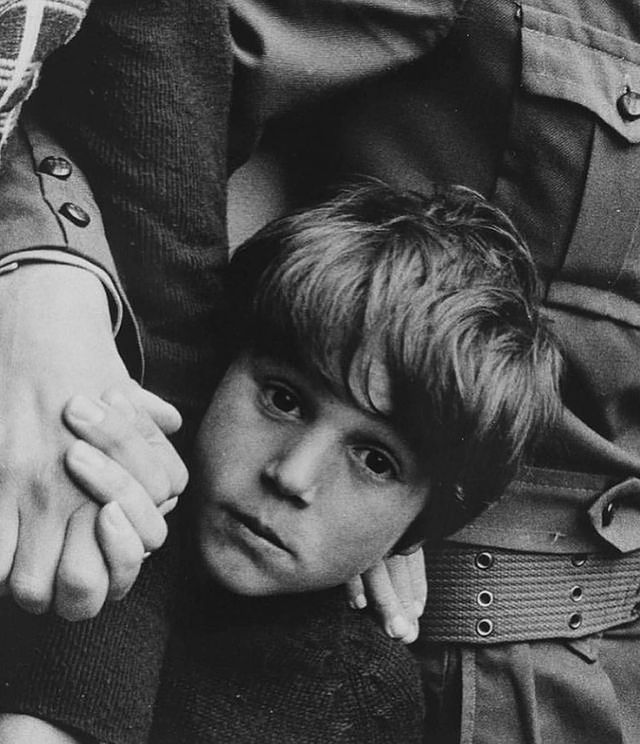On April 25th, 1975, Portugal underwent a momentous change that would forever alter its political landscape. The Carnation Revolution, as it came to be known, was a bloodless coup that brought an end to the country's authoritarian regime and ushered in a new era of democracy and freedom.
The Estado Novo and the Road to Revolution
Portugal had been ruled by the Estado Novo, a fascist regime, since 1933. Under the leadership of Prime Minister António de Oliveira Salazar and later Marcelo Caetano, the regime had tightly controlled all aspects of Portuguese society, suppressing dissent and opposition with a secret police force, the PIDE.
The Estado Novo was built on the idea of corporatism, which held that society should be organized into corporate groups, such as workers, employers, and professionals, with the state serving as the mediator between these groups. The regime also emphasized the importance of Portuguese nationalism, drawing on Portugal's history as a colonial power to justify its rule.
However, by the early 1970s, the regime's grip on power had begun to falter. Portugal's economy was struggling, and the military was embroiled in a costly and unpopular colonial war in Africa. Discontent with the regime had reached a boiling point.
The Road to Revolution
The events that led to the Carnation Revolution began on April 25th, 1974, with a military coup that became known as the "Captains' Revolution." A group of young officers, many of whom had fought in Portugal's colonial wars, seized control of the government and formed the Armed Forces Movement (MFA).
The MFA sought to restore democracy and end the colonial wars. In the months that followed the coup, the MFA faced resistance from hardline factions within the military and from the old regime's loyalists. However, the MFA was able to maintain control and gradually began to implement reforms.
The Role of the Military and the People
In 1975, the MFA launched a second coup, this time against the Caetano government. The coup was mostly peaceful, with the military quickly taking control of key institutions and announcing the end of the Estado Novo.
However, what made the Carnation Revolution unique was the role of the people in bringing about change. On April 25th, as news of the revolution spread, the Portuguese people took to the streets in a frenzy of celebration. They waved red carnations and cheered the downfall of the regime, demanding democracy and freedom.
The people's involvement in the revolution was significant. They had endured decades of repression and censorship under the Estado Novo, and they were eager to participate in the process of building a new, democratic Portugal. The revolutionary spirit of April 25th was characterized by a sense of hope and optimism, as well as a determination to build a better future for all Portuguese people.
The Transition to Democracy
After the revolution, Portugal embarked on a period of political and social transition. The MFA formed a provisional government and initiated a series of reforms, including the nationalization of key industries and the establishment of a national health service.
The country also held its first democratic elections in 1975, which were won by the Socialist Party. However, the transition to democracy was not without its challenges. Portugal's colonial wars had left deep scars, and the country struggled to come to terms with its past.
In addition, the country faced economic difficulties, including high inflation and unemployment. However, despite these challenges, Portugal was able to make significant progress toward democracy and modernization in the years that followed the revolution.
The Legacy of the Carnation Revolution
The Carnation Revolution has had a lasting impact on Portugal's history and culture. It is celebrated as a moment of national unity and pride, a time when the Portuguese people came together to demand change and build a better future for themselves and their country.
The revolution marked the end of a dark period in Portugal's history and paved the way for the establishment of a modern, democratic society. It also inspired other movements for freedom and democracy around the world, particularly in other countries under authoritarian regimes.
Today, Portugal is a thriving democracy and member of the European Union, with a vibrant culture and economy. The country has made great strides in social, economic, and political development since the revolution, and continues to be a source of inspiration for those fighting for democracy and freedom around the world.
Conclusion
The Carnation Revolution was a turning point in Portugal's history, marking the end of a repressive, authoritarian regime and the beginning of a new era of democracy and freedom. It was a moment of national unity and pride, as the Portuguese people came together to demand change and build a better future for themselves and their country.
Although the transition to democracy was not without its challenges, Portugal has made significant progress in the years since the revolution and is now a thriving democracy and member of the European Union. The legacy of the Carnation Revolution lives on today, inspiring those fighting for democracy and freedom around the world.
(Photo by Alfredo Cunha, 25th of April 1974)
